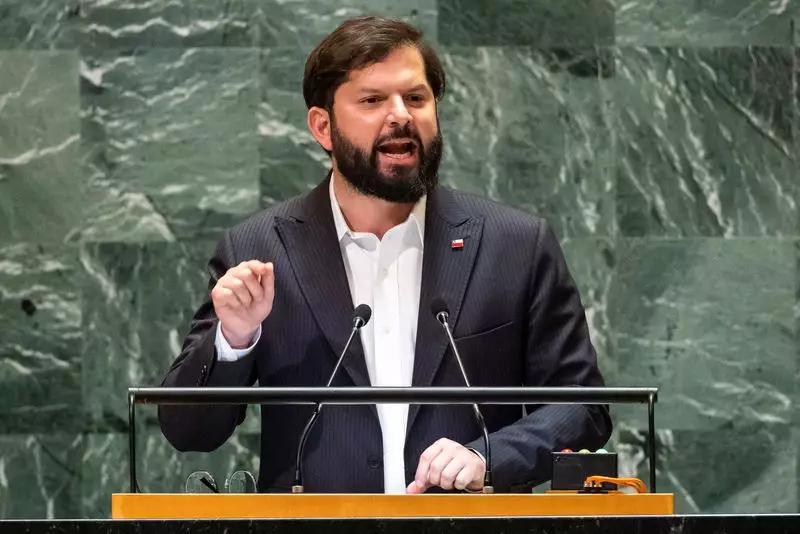In a recent announcement, Chilean President Gabriel Boric unveiled the government’s proposal for a 2.7% increase in the national budget for 2025. This increment reflects the administration’s commitment to addressing pressing social issues and improving the overall welfare of its citizens. As the nation’s political landscape evolves, the proposed budget aims not only to enhance individual sectors but also to address broader societal challenges, including safety, healthcare, and immigration policies.
Perhaps one of the most significant aspects of the proposed budget is the increased focus on national security. President Boric emphasized that the safety of Chilean citizens is paramount, with an allocation of $1.5 billion more than the previous year dedicated to justice and security. This investment is projected to result in a 15% increase in security funding over a three-year span. Bolstering police presence on the streets and providing higher wages for officers are crucial strategies to create a safer environment. Moreover, Boric’s administration plans to increase investments in prison infrastructure, signifying a commitment to not only apprehend criminals but also to rehabilitate them effectively.
In line with strengthening national security, Boric has adopted a more stringent stance on illegal immigration. Citing challenges brought on by the Venezuelan migration crisis, which has seen a large segment of its population seek refuge elsewhere, he indicated that Chile cannot absorb further migrant influxes. His proposal includes measures to expel migrants who fail to comply with the official biometric registration process, indicating a clear intent to prioritize national interests amid increasing socio-political pressures.
Beyond security, the budget seeks to make considerable improvements in social sectors deemed vital for long-term growth. Investments in pensions, healthcare, education, and culture are expected to enhance the quality of life for many Chileans. Notably, a 42% increase in resources devoted to immunization programs signals a proactive approach to public health—an especially crucial factor in light of the lessons learned from the COVID-19 pandemic. Furthermore, initiatives aimed at digitizing 240 sector permit processes highlight the government’s goal of facilitating investment by reducing bureaucratic delays.
Despite ambitious spending, economic growth in Chile faces its own challenges. Recent projections by the central bank indicate anticipated inflation levels and a trimmed growth forecast, with Boric targeting a sustainable growth rate of 2.6%. This underscores the importance of balancing fiscal responsibility with the need for social investment, creating a sustainable framework for Chile’s economy.
As President Boric’s administration prepares to present the budget proposal to Congress, the coming months will be crucial for its approval and implementation. The proposed budget reflects a balancing act—addressing immediate national concerns while fostering long-term social improvements. As Chile navigates its economic landscape amidst regional and global challenges, the focus on security, healthcare, and economic development is vital to the nation’s progress and stability.

